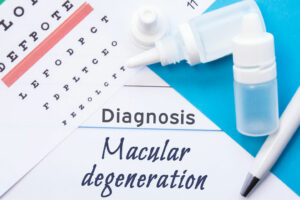Antidepressants are often a key part of a treatment plan for managing mental health conditions like anxiety and depression. They work by increasing the levels of certain brain chemicals and helping improve mood. However, like any treatment option, antidepressants also come with a few side effects. To help one make an informed decision when undergoing treatment involving the use of antidepressants, here are some of the common side effects one should know:
1. Serotonin syndrome
This side effect is associated with certain types of antidepressants that can affect the serotonin levels in the body and cause imbalances. So, here, one may have excessive levels of serotonin. This is called serotonin syndrome. Although rare, this is a serious side effect that can lead to nausea, diarrhea, agitation, frequent bouts of frustration, high body temperature, shivering, and sweating. One may also experience twitching, headaches, tremors, muscle spasms, hyper-responsive reflexes, confusion, dilated pupils, delirium, rapid heartbeats, hallucinations, unexplained heart issues, and high blood pressure. Among the rarer and more serious symptoms of this condition are coma, convulsions, and recurring arrhythmia. This syndrome tends to have varying effects based on factors such as the person’s age, overall health, level of physical activity, and the presence of underlying health conditions.
2. Withdrawal symptoms
Antidepressants can help in the management of mental health disorders, but if one decides to stop taking them cold turkey. Doing so can lead to strong withdrawal symptoms like nightmares, vivid dreams, abdominal pain, anxiety, dizziness, sudden electric shock-like impulses in the body, flu-like symptoms, and high temperature. So, one should work with a doctor and slowly wean off antidepressants if the doctor recommends it. This can help one prevent severe withdrawal symptoms.
3. Diabetes
Antidepressants can affect blood sugar levels. Long-term use of antidepressants has been linked to a higher risk of diabetes. Nevertheless, the direct association between antidepressants and diabetes is yet to be established. Certain types of antidepressants can lower blood glucose, while others can spike. One should consult a doctor to understand the risks of this treatment option to make an informed decision.
4. Gastrointestinal bleeding
A certain type of antidepressant can lead to bleeding and blood loss in the gastrointestinal system, including the intestines and the stomach. This is a rare side effect. Those with a history of abnormal bleeding are at a higher risk of experiencing this side effect when taking antidepressants. Further, those over 80 years old may be more likely to experience GI bleeding. So, one should discuss their complete medical history with a doctor to see if they are at risk of experiencing bleeding and blood loss.
5. Anticholinergic effects
Certain antidepressants block the effects of acetylcholine—a substance responsible for transmitting messages in the nervous system. This can lead to unintended effects called anticholinergic or antimuscarinic effects, like dry mouth, confusion and agitation, drowsiness, blurred vision, constipation, urination issues, tooth decay, hallucinations, hot and dry skin, increased blood pressure in the eye, decreased sweating, low blood pressure, nausea, and rapid heartbeat. This is not common for all types of antidepressants, so one should consult a doctor if they experience any of these unwanted effects and wish to switch to a new type of treatment.
6. Low blood sodium
Antidepressants can block a hormone that helps regulate blood sodium levels. This results in a build-up of fluid inside the cells. Abnormally low blood sodium can cause problems like headaches and confusion. The drop in sodium levels is medically known as hyponatremia. This is more common in older adults and can begin to develop 2 to 4 weeks after starting with antidepressant usage. One can keep an eye out for signs of hyponatremia like nausea, drowsiness, vomiting, fatigue, crankiness, restlessness, headaches, seizures, muscle spasms, weakness, and cramps. Here, upon noticing the signs, it is important to consult a doctor to prevent further complications.
7. Insomnia
Antidepressants can often cause insomnia—a condition that makes it difficult to fall asleep or stay asleep. Antidepressants can activate certain hormones and chemicals within the brain and disrupt sleep activity. One may also experience hyperarousal, hyperactivity, restlessness, and impulsivity, which make it all the more difficult to fall asleep. This side effect can be managed with lifestyle changes and other treatment options. Often, relaxation techniques like meditation and mindfulness-based exercises are recommended to help release sleep hormones and fall asleep quicker. These exercises also help in improving sleep quality over time.
8. Fatigue and drowsiness
The lack of sleep, existing symptoms of mental health conditions, and the sedative effects of certain antidepressants can contribute to a feeling of extreme exhaustion. It is not uncommon for those on antidepressants to nod off in the middle of a conversation or in the middle of watching a movie. Also, they may experience a lack of energy, which interferes with their ability to carry out daily tasks such as climbing a flight of stairs or walking a few paces. This is why one may want to ensure they have a bit of time away from work when starting with antidepressants. This can make it easier to adapt to the change in energy levels and wakefulness.
So, one should discuss all the benefits and risks of available treatment options with a doctor to make an informed decision.

















